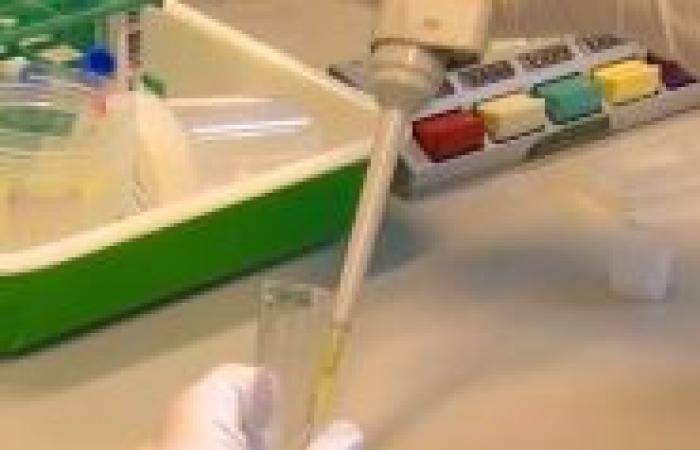In Belgium, one in six parents is accompanied to give birth. Hospitals carry out nearly 10,000 inseminations each year, but who are these donors? What are their motivations? Analysis and explanations.
In medically assisted procreation services, men and women who encounter fertility problems follow one another, but also homosexual couples who wish to start a family. To enable them to make this dream a reality, sperm banks call on anonymous donors aged 18 to 45… Unfortunately, these donations are insufficient to meet the needs of hospitals.
It’s a great accomplishment
With his face hidden, Sébastien agreed to talk about his experience. He became a sperm donor a little over a year ago: “I did a little research online. I came across the MontLégia website. They constantly have patients coming in who would really like that. And honestly, what’s more beautiful than helping to create new human life? It’s a great accomplishment“.
“They look at lifestyle”
Before being accepted as a donor, Sébastien had to undergo numerous examinations to discuss his motivations, his family history, but also a health check and fertility tests. “They look at lifestyle, if you smoke, alcohol. Obviously, they do all the testing for sexually transmitted diseases. Obviously, I had sufficient lifestyle to do it“, he confides.
Twice a month, he makes an appointment at the MontLégia clinic. Here, dozens of men come to donate their sperm per week. “We provide them with the equipment at reception when they arrive. They have a few magazines and the opportunity to pass a video“, shows Dominique Raick, head of the medically assisted procreation laboratory.
Then, the sample is sent directly to the laboratory where the sperm quality is meticulously analyzed. “I’m going to look at the sperm concentration, see if there are many of them. I will also see if the sperm move well. The third thing I will check is their shape, to see if they will be able to fertilize the oocyte without problem“, Réginald Demollin, laboratory technologist at CHC Montlégia. The samples are then immersed in tanks of liquid nitrogen, they will be stored for 10 years, at -180 degrees.
Travel costs are still quite expensive, so we give them the equivalent of one hundred euros per donation
In Belgium, the marketing of sperm is prohibited by law. Compensation is still provided for the donor, as Dominique Raick explains: “He sometimes has to be away from work, sometimes he comes from far away. Travel costs are still quite expensive, so we give them the equivalent of one hundred euros per donation“.
For Dominique the work continues beyond the laboratory, she must associate each donor with a future family. The color of skin, hair, eyes and even height are analyzed to allow the child to fit in as best as possible… no criteria of beauty or physical preference are taken into account.
-To limit the risk of inbreeding, a man’s sperm cannot be attributed to more than 6 different families. However, a donor’s gametes can be used repeatedly by a couple when they wish to conceive additional children.
Sperm banks lacking donations
Today, the 18 Belgian sperm banks rely on foreign countries such as Denmark due to a lack of donations. “We have our own bank which is sometimes insufficient to correspond to certain characteristics of our patients that we do not find in our donors or because we no longer have donors at a given moment.”worries Annick Delvigne, head of the medically assisted procreation department.
Outside the walls of specialized centers, certain practices escape all control. On social networks, dozens of groups in which women come into contact with strangers; men who agree to donate their sperm often, in exchange for a sexual relationship.
Everything is possible and nothing is protected
In addition to the risk of infection, there is a legal danger. “From the moment you become a donor, there is a break in the right of filiation“, warns Annick Delvigne. “A donor cannot request visitation rights and the recipient couple cannot request alimony. As long as we do not go through these regulations, this law does not exist. Everything is possible and nothing is protected“.
Despite several campaigns, hospitals are struggling to recruit new donors. For his part, Sébastien created a capsule on the Internet to encourage his loved ones to donate. A video that could be very useful when we know that in Belgium, 10,000 inseminations are carried out each year thanks to donors.
investigation medically assisted procreation Sperm donation doctor hospitals pregnancy







